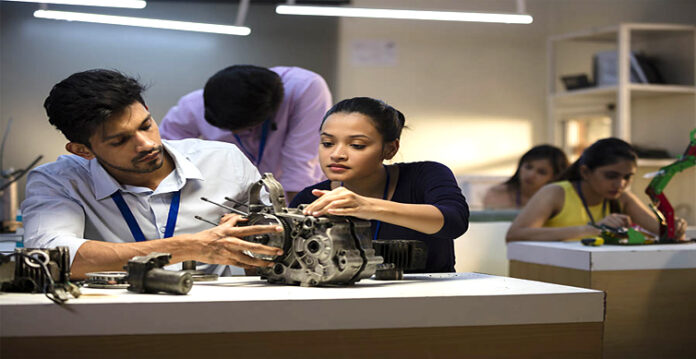A recent survey conducted by TeamLease EdTech has shed light on a notable shift in the perception of higher education among Indian students. The survey, which reached over 10,000 students across the country, reveals that while less than 2 percent of Higher Education Institutions (HEIs) currently offer work-linked degrees, 85 percent of students believe these programs represent the future of education in India.
Work-linked degrees, which combine academic learning with practical work experience, are increasingly seen as essential by students seeking better job prospects. The survey found that 80 percent of students consider work experience a crucial factor in improving their chances of securing high-paying jobs. Additionally, 40 percent cited financial independence as a key motivator for preferring work-linked degrees, underlining the growing importance of earning while learning in the current economic climate.
Flexibility in learning schedules and on-the-job mentorship are also significant attractions for students. About 66 percent of participants expressed a preference for programs that offer flexible learning timelines, which would allow them to balance academic commitments with work. Meanwhile, 56 percent valued the opportunity to receive mentorship while gaining practical, hands-on experience in their chosen fields.
Also Read: UGC Announces Draft Guidelines for Undergraduate and Postgraduate Degrees
The findings suggest a need for higher education institutions to adapt their curricula and adopt more flexible, skill-oriented programs that align with the National Education Policy (NEP) 2020 and meet the evolving expectations of students. The NEP, which emphasizes skill development and vocational training, has provided a policy framework that aligns with the demand for work-linked degrees.
The survey also highlights a significant level of awareness about work-linked degrees among students, with 93 percent of participants familiar with the concept. This reflects a growing understanding of the benefits these degrees offer in terms of employability and career advancement.
When it comes to internships, the survey indicates that IT and marketing roles are the most sought-after by students. A quarter of respondents (25 percent) prefer tech positions, while 24 percent gravitate toward marketing roles. Banking and finance positions follow closely, with 19 percent of students expressing an interest in these fields. These preferences point to the industries where students feel they can gain the most practical exposure and enhance their career prospects.
As the demand for practical experience in higher education grows, the pressure is mounting on HEIs to integrate more work-linked programs into their offerings. This trend reflects a broader global shift towards education that bridges the gap between theoretical knowledge and practical skills, enabling students to transition more seamlessly into the workforce.
The survey results underscore a changing educational landscape in India, one where students are increasingly looking for programs that equip them with the skills and experience necessary to thrive in a competitive job market. With the rising importance of work experience, flexibility, and mentorship, the future of higher education in India appears poised to undergo a significant transformation.
(This story is sourced from a third-party syndicated feed. Raavi Media takes no responsibility or liability of any nature. Raavi Media management/ythisnews.com can alter or delete the content without notice for any reason.)


